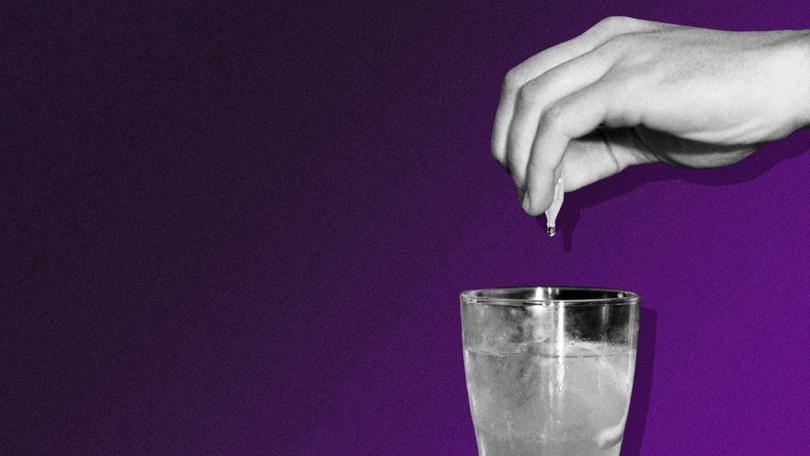JENI O’DOWD: Why it’s time to shift the narrative on drink spiking
JENI O’DOWD: Women have every right to enjoy a night out without worrying that some scumbag is going to drug and possibly assault them.

It’s time to shift the narrative around drink spiking. For too long, the burden of staying safe has been placed on the shoulders of women. We’re told to watch our drinks being poured, never accept a drink from a stranger and never assume a friend is merely drunk.
While practical, this approach is fundamentally flawed because it implicitly suggests that women are responsible for preventing these crimes. It’s a Band-Aid solution that doesn’t address the root of the problem — the perpetrator.
Despite widespread campaigns warning women against drink spiking, the lack of repercussions has seen the numbers continue to climb.
Sign up to The Nightly's newsletters.
Get the first look at the digital newspaper, curated daily stories and breaking headlines delivered to your inbox.
By continuing you agree to our Terms and Privacy Policy.NSW has just recorded the highest number of drink and food spiking incidents in a decade, and alarmingly, this insidious trend is on the rise.
Data from the NSW Bureau of Crime Statistics and Research, obtained by The Nightly, reveals that NSW Police recorded 236 food or drink spiking incidents between April last year and this March.
This marks an increase of nearly 4 per cent compared to the previous year and an astonishing 98 per cent increase over the past decade.
Significantly, the BOSCAR data shows that the number of criminal proceedings started within 30 days of the crime being reported has stayed around the same in the past 10 years — around three cases, or 1.7 per cent, each year — highlighting the difficulty in catching offenders.
And if you think drink spiking is an urban myth or something that only happens to a few, it’s not.

Last week, my friend’s smart and funny 19-year-old daughter Jessie (not her real name) went with a group of friends to a suburban pub in the well-heeled area of North Sydney.
A few hours later, after playing pool with her mates (an area not covered by security cameras), she couldn’t even hold her head up, let alone protect herself.
Feeling extremely ill after consuming just three drinks, Jessie went to the bathroom. One of her friends had the presence of mind to follow her when she didn’t emerge.
Fortunately, Jessie had a strong enough relationship with her mother to call and tell her something was very wrong and ask if she could pick her up.
When my friend arrived at the pub, Jessie could not even stand. Alarmed, my friend called an ambulance, and her daughter was taken to the hospital where, after a series of tests, drink spiking was confirmed. The next day, her daughter couldn’t remember anything.
“I always thought that drink spiking was an excuse some girls used when they drank too much. So it absolutely blew my mind when it happened to my own child,” my friend confessed.
“I called the local police, who told me it happens so often that unless there’s an assault, they can’t do anything. I spoke with the local pub, who said what happened to Jessie had happened several times, and luckily, their staff were trained to see the signs.”
Jessie is now afraid to go out and has had to see a counsellor. This is the devastating impact even without any assault actually occurring. The psychological trauma shows just how awful the initial act of drink spiking can be.
Women have every right to enjoy a night out without worrying that some scumbag is going to drug and possibly assault them.
Most licensed premises in NSW now have security cameras, and last year, mandatory drink-spiking and sexual violence awareness training for bar staff and security guards in NSW pubs and clubs was introduced.
Additionally, NSW Police expanded its Drink Safe campaign, which includes educational initiatives and the promotion of practical tools like drink covers and coasters to help protect patrons from drink spiking.
However, there is clearly a disconnect between these measures and their effectiveness.
Personally, I have never seen drink covers in pubs here. They are more common overseas, particularly in the US.
The real question we should be asking is why we are not holding perpetrators accountable with the severity they deserve.
Although drink spiking is a criminal offence — in NSW and Victoria, penalties include fines and up to two years imprisonment — there are few convictions.
The penalties for drink spiking in Queensland are much higher. The maximum penalty for administering, or attempting to administer, a stupefying or illicit substance in a person’s drink without their knowledge is up to five years in prison. This applies regardless of whether the spiked drink is consumed or not.
Venues need to be more proactive in preventing drink spiking by implementing measures such as always providing covers for drinks as soon as they are served and increasing the range of security cameras.
We are about to enter the perfect storm of Schoolies, where both drink and needle spiking are believed to be rampant in Newcastle and on the Gold Coast.
Are we just going to sit by and let this happen to 18-year-olds fresh out of school and not used to crowded pubs and nightclubs?
When a man is seen taking a seemingly intoxicated girl out of a pub — saying over his shoulder to security, “It’s fine my girlfriend is just hammered, mate” — should they not be questioned and the girl closely looked at?
Women have every right to enjoy a night out without worrying that some scumbag is going to drug and possibly assault them.
It’s time for a change, and it starts with us.
